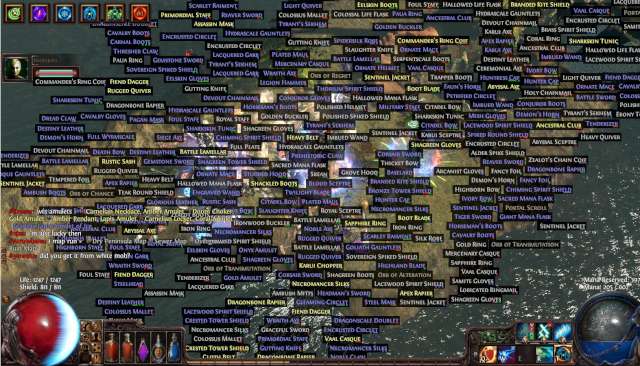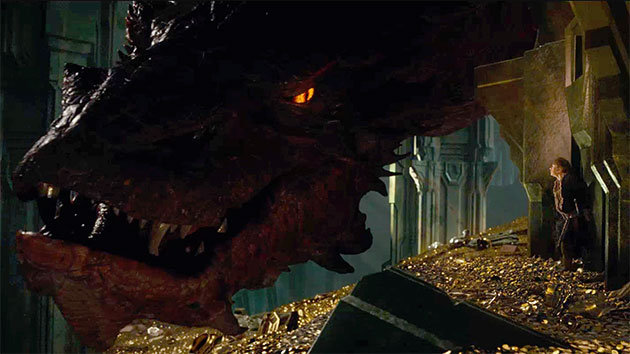I have a love/hate relationship with loot in games. Whenever I reflect about what the hell I'm actually doing, clicking away for hours with the sole purpose of amassing digital items on the screen that are barely more powerful than the other digital items my character has, loot becomes a focal point of self-awareness and a punching bag of self-loathing. But then while I'm engrossed in games based around loot, like Path of Exile or Borderlands 2, I forget about all that. I let myself go into a trance and I don't return to reality until my bladder, stomach, or throat beckon, or the sound of birds tell me it's morning. There's must be much more to loot that meets the eye.
So what is it about loot that compels us so? Is it merely the acquisition and accumulation of goods, some form of digitized materialism that feeds into our brain chemistry? Surely, there is the short explanation: We want better things. To the victor go the spoils, after all. We desire higher-quality weapons, equipment, scrolls, and whatever else that can make our character stronger and conquer more difficult dungeons with tougher grunts and even tougher bosses. It's not just about showing off how awesome some piece of legendary armor looks to the rest of your guild and unsuspecting strangers, or to keep up with the Joneses, but to show off your dedication and commitment.
A part of the obsession for loot stems from several psychological effects based on the dopamine kick that have been studied and cited in various articles before. Positive reinforcement, and that hope in receiving one of the rarer drops (be they colored in purple or gold text) by the roll of the dice, continues the cycle of dungeon-crawling. It's a slot machine in a much more exciting wrapper. Grind enough times through a dungeon at your level and, by the law of averages, you'll eventually receive at least one of the best items in the game and a whole lot of items to sell, trade, give, or disassembl. Combine this with the in-born human instinct of accumulating helpful resources, and you can see why the design of a game can be built strictly around loot.

But obtaining rewards isn't just meant to be a burst of pleasure from completing a mechanical task; in a classical sense of storytelling, it's also about completing the journey and bringing resolution to an ordeal, oft represented by a beast larger, swifter, and more powerful than the character. Defeating a boss oftentimes earns the player enough experience to earn an additional level, reflecting a sense of growth and rebirth into a stronger character. There may even be a pillar of light that covers the player as a symbol of ascension.
Encountering death and survival brings meaning to the mechanical workings of the gameplay. Games offer the poetic fantasy that conquering a beast at a particular level will nearly always reap rewards proportional to the challenge, where a Level 38 boss will drop items close to its level. It likewise offers a tangible reward, an object for celebration, whereas in reality a stash of gold or weapons in a chest or spewing forth from a dead corpse wouldn't be that plausible; or even more likely in real life, there is no tangible reward at all apart from emotional growth, which is difficult (though not impossible) to translate through games.

On the flip side, reaping the treasure usually signals the end of a dungeon in games, so when that treasure is taken from the player, it creates a will to recover the reward and continue the story. The plot for The Elder Scrolls V: Skyrim uses this technique multiple times, once when the player attempts to recover The Horn of Jurgen Windcaller but is instead left with a note by a mysterious figure who wishes to meet at a tavern, and another time in the Dragonborn DLC when the main baddie, Miraak, steals dragon souls the player would have received normally from any dragons slain… if just to add more incentive to beat that dragon priest senseless. The loss of a reward is as much an important part of story design due to our expectation of one.
Loot doesn't only represent an obsession for possession in games, but also serves as a means to finish off the quest line both mechanically and narratively. In rare instances, they may even impart that fleeting moment of epiphany, of self-realization for the hero and hopefully the player, and form the conclusion of one journey before the beginning of the next. A greater reward than the loot itself, it is a source of transformation, and a part of why gaming is such a wondrous medium.







